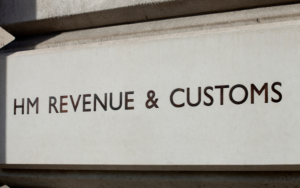
The interest rate on overdue tax is determined by existing legislation and may go some way towards encouraging taxpayers to settle outstanding bills. The total tax debt owed in the UK is currently around £46.9 billion and the government is bolstering HMRC's collection teams to tackle this sum.
How does the interest charged on late tax payments work?
In a bid to make things fair for those who pay their tax bill on time, HMRC charges interest on outstanding tax payments from the 1st day after they are due. The charges continue to accrue during the period of non-payment even if a payment plan is agreed upon with HMRC.
The interest rate is set at 2.5% above the Bank of England's base rate of interest which is currently 3.5%, hence the 6% interest rate charge.
HMRC's online tool can provide an estimated breakdown of interest charges as well as any late penalty charges for the last seven tax years up to 2020/21.
What other charges apply to late tax payments?
As well as accruing interest, late taxpayers will usually receive penalty charges associated with missed tax submissions and payment deadlines. Self-assessment tax returns for the tax year 2021 - 2022 are due on the 31st January 2023 and interest charges will apply from the first day after non-payment (1st February 2023). The late penalty charge of £100 is likely to be levied against all late self-assessment tax submissions this year, unlike last year when HMRC allowed an extra month before penalising late submissions.
Other types of tax payments such as VAT and corporation tax are also subject to various penalties for late payment. Whilst these can be avoided by entering into an agreement with HMRC if you struggle to pay on time, the interest charges will usually continue to accrue until the bill has been settled.
What to do if you cannot afford to pay the tax you owe
Entering into a payment plan may stop penalties being applied but interest charges will still accrue against your outstanding tax bill. You can apply for a "Time to Pay" payment plan via HMRC and these can be arranged for those who can satisfy the conditions set out below, based on the type of tax they owe.
Self-assessment tax
- The amount of tax you owe is less than £30,000
- It has been 60 days or less since your tax payment was due
- The outstanding amount will be cleared within the next 12 months
- You have no other debts or payments plans in place with HMRC
Employers' PAYE contributions
- The amount you owe is less than £15,000
- It has been 35 days or less since your tax payment was due
- The outstanding amount will be settled within the next 6 months
- You have no other debts or payment plans in place with HMRC
- You have made all PAYE and Construction Industry Scheme submissions
It is worth noting that HMRC is unlikely to offer a payment plan if you or your business has savings, investments or other assets that could be used to settle your tax bill. The tax office is also inclined to ask directors of companies that owe tax to look at personal funding, including raising funds through credit.
Those who cannot set up a payment plan online should contact HMRC by phone on 0300 200 3300 to discuss other options for payment.